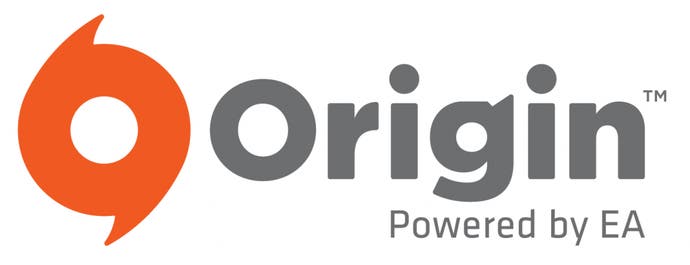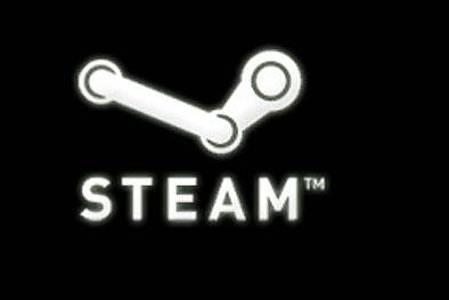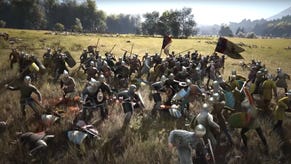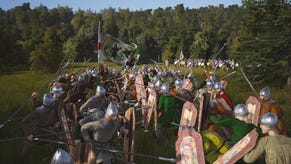Valve counters EA's Steam sales "cheapen intellectual property" accusation
"If we thought having a 75 per cent sale on Portal 2 would cheapen Portal 2, we wouldn't do it."

Valve has countered EA's accusation that Steam sales "cheapen" intellectual property, saying they in fact benefit games, publishers and gamers.
Last month EA's David DeMartini, who runs rival digital platform Origin, said Steam sales, which often see discounts of up to 75 per cent, "cheapen intellectual property".
Vowing not to copy Steam's popular 75 per cent off sales, DeMartini said: "The game makers work incredibly hard to make this intellectual property, and we're not trying to be Target. We're trying to be Nordstrom."
But when Eurogamer put this accusation to Valve business development chief Jason Holtman at the Develop conference in Brighton today, he said the opposite was true.
"Ask our partners," he said. "Ask the large to the small and see what they think about that. Putting it all in the bucket of, it's all about the discounts, I don't think that's everything about it.
"Discounts serve a lot of functions. Highlighting serves a lot of functions. The qualities of the games serve a lot of functions. Everything we've seen, PC games and IP and all those franchises are more valuable today than they were four or five years ago.
"If this were all about a cheapening and somehow lessening the money out there or somehow customers don't want to pay any more, they think everything should be like a used car lot - sticker price is not the real price - you'd feel that and you'd get real reinforcement of that. We don't see any of that. We see people buying a lot and enjoying it and playing a lot.
"Discounting is one small function of what we do. It's one small function of our market and our store. It certainly doesn't seem to be anything that cheapens IP.
"We do it with our own games. If we thought having a 75 per cent sale on Portal 2 would cheapen Portal 2, we wouldn't do it. We know there are all kinds of ways customers consume things, get value, come back, build franchises. We think lots of those things strengthen it."
In DeMartini's interview with GamesIndustry International, he suggested Steam's reputation for deep discounting meant many gamers do not buy games on day one, instead waiting for a sale that may come four or five months down the line. This, he claimed, has a negative impact on publishers and game creators.

Holtman said Valve's data, based on some 40 million users, disproved this theory.
"If we were somehow on a cycle where you could see it, you wouldn't see us repeating it. We wouldn't repeat it with our own games. We wouldn't repeat it with partner games. Partners wouldn't want to repeat it.
"Actually everything we see is to the contrary. It's funny, when you look at the data, things come out and they make you scratch your head for a little bit, and then you're like, that kind of makes sense.
"For instance, if all that were true, nobody would ever pre-purchase a game ever on Steam, ever again. You just wouldn't. You would in the back of your mind be like, okay, in six months to a year, maybe it'll be 50 per cent off on a day or a weekend or during one of our seasonal promotions. Probably true. But our pre-orders are bigger than they used to be. Tonnes of people, right? And our day one sales are bigger than they used to be. Our first week, second week, third week, all those are bigger.
"That points out that what's happened with those sales is, you've probably caught somebody and introduced them to a game when they haven't had it, and they've played it, and the next time the franchise comes out or the next move from that publisher, the next move from the partner, they've just become more avid gamers.
"The trade-off they're making is a time trade-off."
Holtman said a good way of thinking about the issue is to compare sales from discounted games versus day one sales to the relationship between going to the cinema and buying a film on DVD.
"Following that argument, nobody would ever go to a first run movie ever again. Even now, as DVDs come out even faster, you'd just be like, heck, I'll just wait and get the DVD and me and 10 friends will watch it. But people still like to go to theatres because they want to see it first, or they want to consume it first. And that's even more true with games.
"If you're a fan of a game or a property, and you want it when it comes out, you want it. It's very valuable to you because you're a fan. You want to play it then, just like you want to see your favourite rock back when they come around.
"If you want to wait and get a discount later or find a sale or promotion, that's also super valuable for you. But all of those pieces, what they're adding up to is, more people are playing games, more people are engaged and they're making choices all along that spectrum of, yeah, I want that game when it comes out and, oh, I used to buy that game and now I'll buy it a year later. That's fine too."
Holtman added that Steam's promotions for older games helped convince gamers who may have passed on them at first to dip in.
"The nice thing is buying a year later at some discount or special promotion, those things used to be really hard to find. It used to be, if you didn't get a game in the first three months it was around, you were out of luck because you had to find a copy of it. You had to find a box where it was stocked.
"Now you can do things like say, I never did own XCOM. Maybe I should buy that for $2 or $5 and pick it up. Or I didn't get that triple-A game from three years ago, maybe I'll pick that up on a promotion. And that's making people happier. And it's making them more willing to even buy the first time release.
"And that's what we're seeing in our data. Tonnes of people are still pre-purchasing games and getting them when they come out."
Origin is now the number two direct to consumer game service with over 11 million registered users, having launched a year ago. It is second only to Steam, which has some 40 million accounts.
A year into its life, Origin has generated $150 million in revenue, fuelled by the launch of Mass Effect 3, Battlefield 3 and Star Wars: The Old Republic. Indeed full game downloads were up 76 per cent year on year.
But it has been the subject of much debate among PC gamers who have seen EA titles removed from Steam as the battle between the two platforms has played out.









